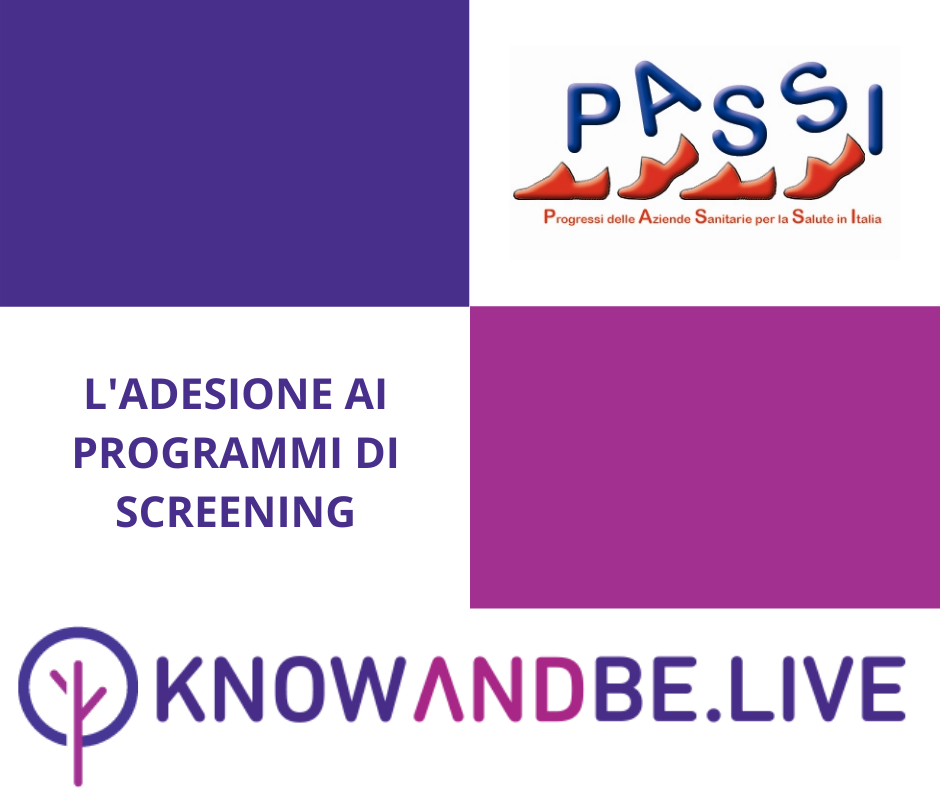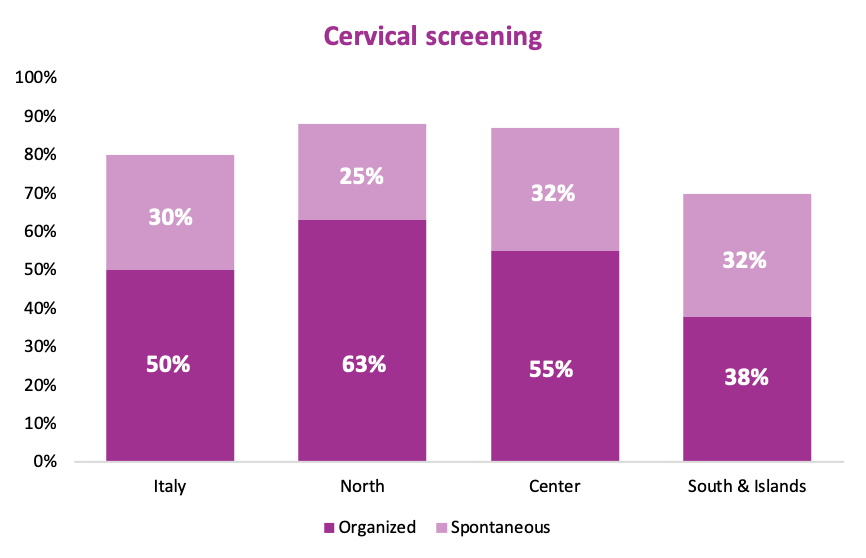Cancer screening for the early diagnosis of tumors. Lights and shadows
The PASSI survey data has been updated

October 8th, 2020
Early detection screenings [1] are effective tools for fighting cancer.
The
PASSI system (Progress of Authorities for Healthcare in Italy) of the National
Health Institute collects information on participation in the 3 screening
programs in Italy, dedicated to early detection of breast, cervical and
colorectal cancer.
The latest collected data [2] show that the range of programs offered is not uniform throughout the country and the lower use of organized screening in the South/Islands compared to the North partly reflects the lower and insufficient supply in those territories. And spontaneous initiative screenings are not enough to close the gap.
Fortunately, however, program offerings are growing everywhere.

Breast screening
75% of women underwent the examination in the
previous two years, most of them by participating in organized programs.
In Central and Southern Italy the use of spontaneous screening increases, due
to the insufficiency of organized screening, and there remains a gap to be
filled, between South and North Italy, of almost 20 percentage points!

Cervical screening
80% of women underwent this screening in the three-year period,
participating in the organized programs. On the contrary, the number of women
who use them on their own initiative is decreasing.
Even for this exam, the gap between Southern and Northern Italy is 18 percentage points!

Colorectal screening
Only 48% of men and women attend colorectal screening, mostly taking advantage of organized programs, but the amount of people who use the test is increasing.

The difference between Southern and Northern Italy is very strong, with a gap
of 40 percentage points! The 53% of interviewees by PASSI who did not
participate in colorectal screening were mostly those between 50 and 60 years
old, socially disadvantaged due to economic difficulties or low level of
education and living in the South and Islands.
Moreover, among people who do not undergo screening, the prevalence of smokers,
sedentary, overweight is higher.
Among the reasons given for not screening for Blood test from a stool sample, by
those who have never tested it or have done so beyond the recommended time
period, it appears that most think they don't need it (32%) or report never
being advised to (25%).
For this reason, the doctor's advice to participate in the colorectal screening
program becomes essential, along with the invitation letter from the Local
Health Authority, but only 35% of the people interviewed received such
advice.
1 A cancer screening test is an examination that helps detect cancer at an early stage.
2 Source: Cancer numbers in Italy 2020 (for citizens and patients) - PASSI Surveillance